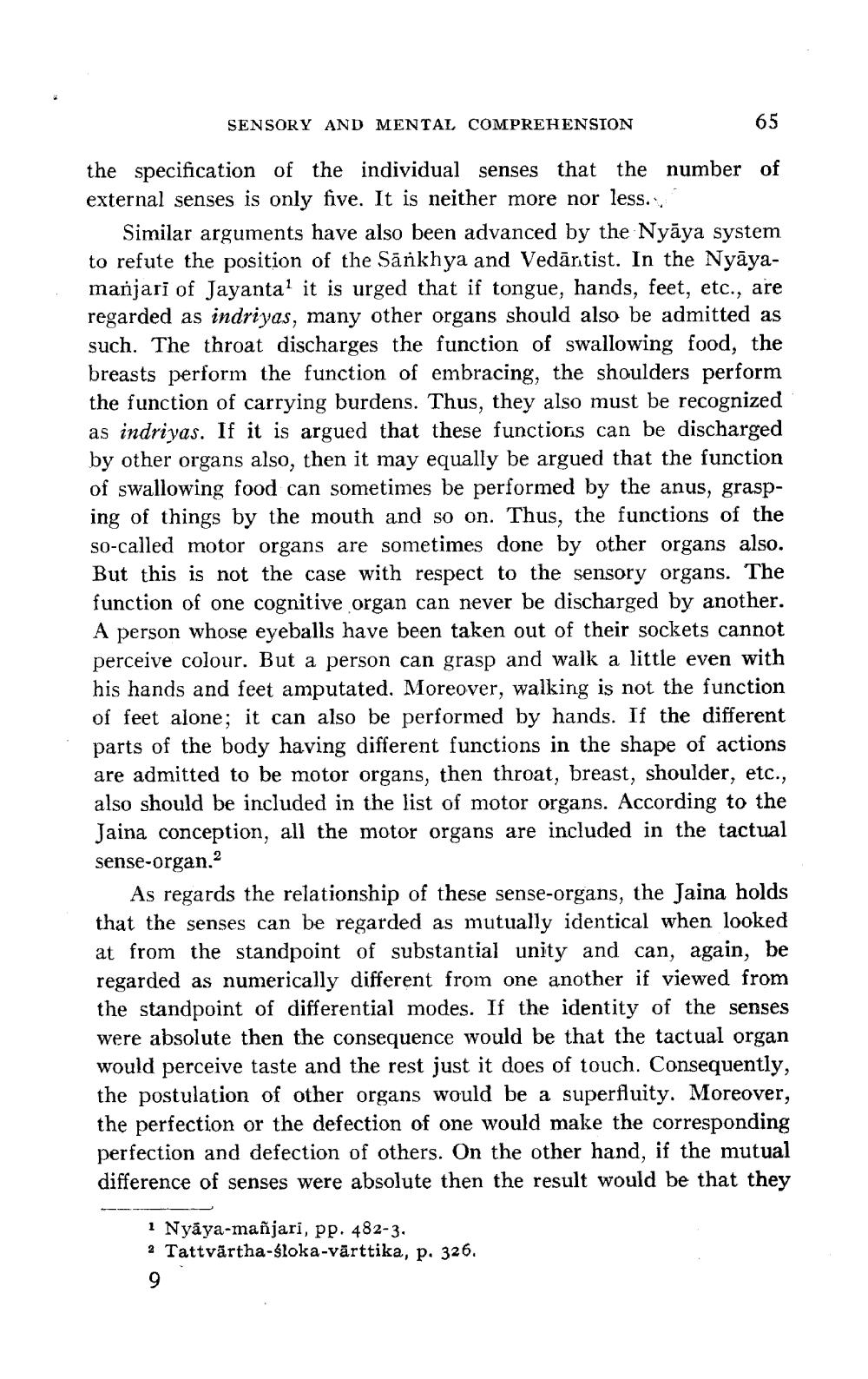________________
SENSORY AND MENTAL COMPREHENSION
65
the specification of the individual senses that the number of external senses is only five. It is neither more nor less.
Similar arguments have also been advanced by the Nyāya system to refute the position of the Sārkhya and Vedāntist. In the Nyāyamanjarī of Jayanta' it is urged that if tongue, hands, feet, etc., are regarded as indriyas, many other organs should also be admitted as such. The throat discharges the function of swallowing food, the breasts perform the function of embracing, the shoulders perform the function of carrying burdens. Thus, they also must be recognized as indriyas. If it is argued that these functions can be discharged by other organs also, then it may equally be argued that the function of swallowing food can sometimes be performed by the anus, grasping of things by the mouth and so on. Thus, the functions of the so-called motor organs are sometimes done by other organs also. But this is not the case with respect to the sensory organs. The function of one cognitive organ can never be discharged by another. A person whose eyeballs have been taken out of their sockets cannot perceive colour. But a person can grasp and walk a little even with his hands and feet amputated. Moreover, walking is not the function of feet alone; it can also be performed by hands. If the different parts of the body having different functions in the shape of actions are admitted to be motor organs, then throat, breast, shoulder, etc., also should be included in the list of motor organs. According to the Jaina conception, all the motor organs are included in the tactual sense-organ.
As regards the relationship of these sense-organs, the Jaina holds that the senses can be regarded as mutually identical when looked at from the standpoint of substantial unity and can, again, be regarded as numerically different from one another if viewed from the standpoint of differential modes. If the identity of the senses were absolute then the consequence would be that the tactual organ would perceive taste and the rest just it does of touch. Consequently, the postulation of other organs would be a superfluity. Moreover, the perfection or the defection of one would make the corresponding perfection and defection of others. On the other hand, if the mutual difference of senses were absolute then the result would be that they
1 Nyāya-mañjari, pp. 482-3, 2 Tattvärtha-sloka-värttika, p. 326.




